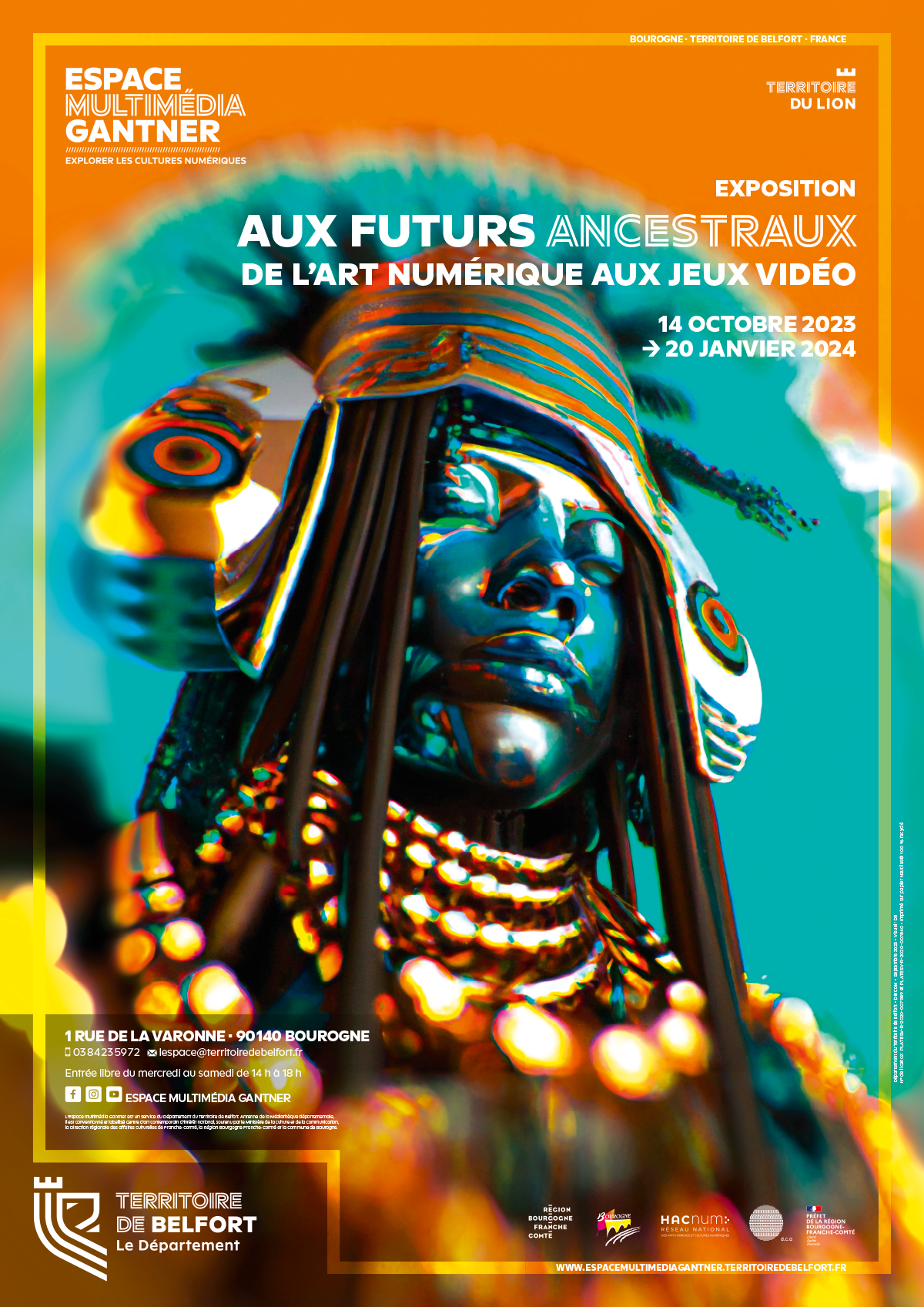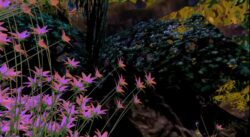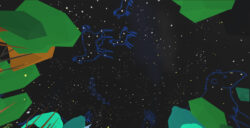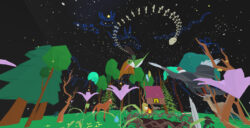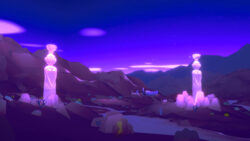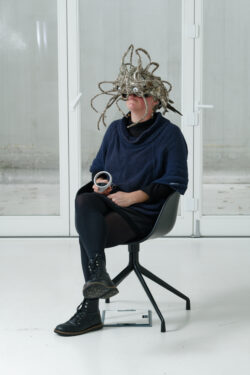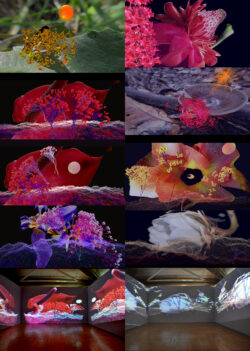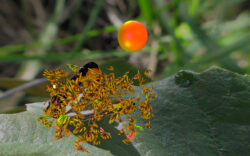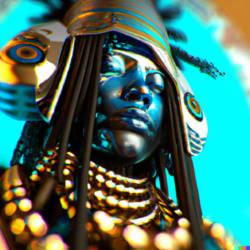Aux Futurs Ancestraux, from digital art to video games
Curator : Isabelle Arvers
From 14 October 2023 to 20 January 2024
“When we say that the future is ancestral, it has more to do with DNA than genealogy. It’s worldview: it’s the ability to go back to an event that created the world and is alive in you. We want a constant creation of everything and ourselves. This is what happens in DNA, the code handed down by our ancestors. This can reintroduce us to the constellation of life within the planet, where we stop being specialists and realize that we have a common origin”. Ailton Krenak, philosopher and leader of the Brazilian indigenous Krenak movement and author of the book Futuro Ancestral en 2021
The global games market is still dominated by Europe, the United States and Japan.The exhibition “Aux futurs ancestraux” adopts a decolonial perspective on art and games in order to echo works conceived on the periphery of this global and globalizing culture. “Aux futurs ancestraux” immerses us in other types of representations, cities, landscapes, narratives and cosmogonies, conceived and expressed in other languages, and seeks to decolonize our imaginary through the co-construction of narratives born of the encounter between oral tradition, endogenous knowledge and the virtual universes of video games.This necessary dialogue between these different modes of knowledge requires a paradigm shift. Science and human thought are no longer the only sources of knowledge; it is now possible to think of knowledge “beyond the human” (Eduardo Kohn). “This implies that nature thinks, that animals think, and that non-humans can teach us techniques and knowledge, by changing our perspective. (Viveiro de Castro).
Between photo installations, drawing, performance, video installations, immersive, interactive and video game, an exhibition that invites us to reconnect with what connects us to our ancestral futures: the living.
A graduate of the Political Sciences Institute and a Master in Management of cultural projects, Isabelle Arvers specializes in new media in 1993. Pioneer in the field of game art in France , she curated Playtime – the gaming room of Villette Numérique (2002), as well as the net.art gallery on “sound games”.
Her following exhibitions and projects then presented the video game as a new language and as a medium for artists: Organizing a gameboy music concert at Project 101, Paris, 2004 She also curated Mind Control, a net.art exhibition for Banana RAM Ancona, Italy , 2004, and Node Runners game festival, for the Region Ile de France in Paris, 2004. Curator Reactivate under Gametime festival , Melbourne, Australia 2004 / 2005.
Exhibition curator No Fun ! Games and the gaming experience for Piksel festival in Bergen, Norway , 2005. Playing Real, 2007 Gamerz 2009-2014 Digital Lounge at Maison Populaire , Montreuil , and Game Heroes at the Alcazar , Marseille, 2011.
From 2005, she is interested in machinima ( films made within virtual worlds using real-time 3D engines or video games) and organizes screenings at the Centre Pompidou, at festivals in France and abroad (Czech Republic , Brazil, Canada) since 2009, she organizes workshops initiation or completion of machinima , to democratize a practice that transforms an object of mass consumption into a production tool.
_______________________________________________________________________________________________
Around the exhibition:
– Saturday, October 14, 5pm: meeting with exhibition curator Isabelle Arvers and artists Aniara Rodado and Henri Tauliaut
– Sunday, January 14, 4pm: guided tour of the exhibition by Isabelle Arvers, followed by a performance by Aniara Rodado
– Guided tours:
Saturday December 9 and Saturday January 6 at 3pm by Sophie Monesi
– Online appointments:
During the exhibition: a series of interviews with Isabelle Arvers on the EMG Youtube channel
From November 13: interview with Isabelle Arvers (directed by Silvi Simon / produced by Espace multimédia Gantner) on this page and on our Youtube channel.
From December 5: virtual reality tour of the exhibition on this page (designed by Vincent Marguet / Espace multimédia Gantner)


